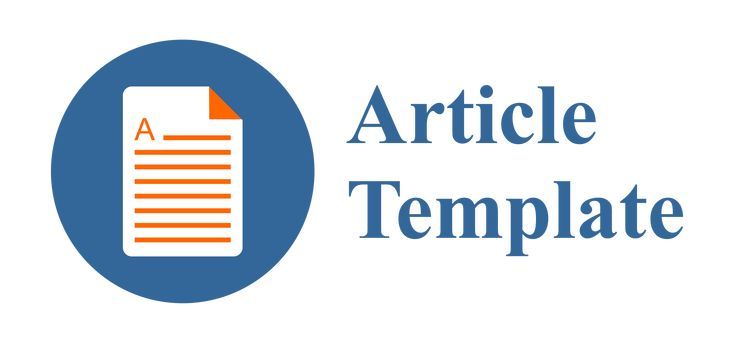Pengukuran E-learning Readiness pada Mahasiswa Sebagai Upaya Penerapan Pembelajaran Jarak Jauh Masa Pandemi COVID-19
DOI:
https://doi.org/10.29408/edumatic.v4i2.2674Keywords:
Covid 19, Measurement of E-learning Readiness, PJJAbstract
One of the efforts to reduce COVID-19 cases is a Distance Learning (PJJ) system for all levels of education. This study aims to determine the e-learning readiness of Cikarang University. Measurement of e-learning readiness implementation is carried out using the ELR framework. In this study, the ELR framework has consist of 4 main components, that are technology, innovation, people and self-development. This research was conducted on student in Cikarang University. Collecting data used structured interview with the campus management and then distributing questionnaires. The data processing used descriptive statistical techniques then mapped the e-learning Readiness index. The results of this study is to show that the Faculty of Engineering Cikarang University in the third level (ready) in implementing e-learning, but still requires improvement and preparation in several aspects to achieve success in implementing e-learning. Some recommendations are proposed for Cikarang University, that is the availability of an e-learning system that can fulfill students' need for learning and assigning. In addition, the campus is expected to be able to conduct socialization and training on e-learning to students so that it makes students understand the e-learning system at Cikarang University.
References
Agustina, R. (2016). Sejarah, tantangan, dan faktor keberhasilan dalam pengembangan e-learning. Seminar Nasional Sistem Informasi Indonesia, 210-218. Surabaya: SESINDO,
Aydin, T. (2005). Measuring Readiness for e-Learning: Reflections from an Emerging Country. International Forum of Educational Technology & Society Journal of Educational, 7(4), 244–257.
Darmawan, D. (2014). Pengembangan E-learning Teori dan Desain (1st ed.). Bandung: PT Remaja Rosdakarya.
Fajri, S. (2018). Pengukuran Tingkat Kesiapan Penerapan E-Learning Di SMK N 1 Banyumas. Universitas Negeri Yogyakarta.
Fariani, R. I. (2013). Pengukuran Tingkat Kesiapan E-Learning (E-Learning Readiness). Seminar Nasional Aplikasi Teknologi Informasi (SNATI), G1-G7. Yogyakarta: Unviersitas Islam Indoensia.
Faslah, R., & Santoso, H. B. (2017). Analisis Kesiapan Implementasi E-Learning Menggunakan E-Learning Readiness Model. POSITIF: Jurnal Sistem dan Teknologi Informasi, 3(2), 113-120. https://doi.org/10.31961/positif.v3i2.431
Juwono, T. (2016). Metode Sampling dan Teorema Central Limit Mengapa Perlu Sampling (Issue March). Surya University, Tangerang.
Kamarga, H. (2002). Belajar sejarah melalui e-learning. Jakarta: PT. Inti Media.
Kaur, K. (2004). An Assessment of e-Learning Readiness at the Open University Malaysia. International Conference on Computers in Education (ICCE2004), 1-8. Malaysia: Open University Malaysia. http://library.oum.edu.my/repository/id/eprint/115
Kemendikbud RI. (2013). Permenkes RI Nomor 109 Tahun 2013. 1–8.
Kemendikbud RI. (2020). Surat Edaran No 3 tentang Pencegahan COVID-19 pada Satuan Pendidikan.
Khatimi, H. (2006). Mengenal E-learning Sebagai Salah satu Bentuk Kegiatan Pembelajaran. 7(2), 72–81.
Priyanto. (2017). Model E-Learning Readiness Sebagai Strategi Pengembangan E-Learning. International Seminar Proceedings, Information And Communication Technology (ICT) In Education, 267–275. Yogyakarta: Universitas Negeri Yogyakarta
Putra, Y. (2018). Sistem Informasi Manajemen: Pengenalan Model Pembelajaran e-Learning. Universitas Mercu Buana, Jakarta. http://43217110334.blog.mercubuana.ac.id/2018/12/25/pengenalan-e-learning/
Surjono, H. D. (2010). Membangun Course E - Learning Berbasis Moodle. Yogyakarta:UNY Press.
Susanti, W., & Putri, R. N. (2020). Penerapan Cloud Computing Sebagai Media Pembelajaran Berbasis Online Masa Pandemi Covid-19. JOISIE (Journal Of Information System And Information Engineering, 4(1), 56–61.
Susanti, W., Yuliendi, R. R., Ambiyar, A., & Wakhinuddin, W. (2020). Perancangan Pembelajaran E-Learning Bahasa Inggris untuk Pemula Berbasis Multimedia. Edukasi: Jurnal Pendidikan, 18(1), 101-112. https://doi.org/10.31571/edukasi.v18i1.1601
Verawardina, U. (2020). Reviewing online learning facing the Covid-19 outbreak. Talent Development and Excellence Journal, 12(3), 385–392.
Waryanto, N. H., & Insani, N. (2013). Tingkat Kesiapan (Readiness) Implementasi E-Learning di Sekolah Menengah Atas Kota Yogyakarta. Jurnal Pendidikan Matematika dan Sains, 1(2), 117-124.
Downloads
Published
How to Cite
Issue
Section
License
All articles in this journal are the sole responsibility of the authors. Edumatic: Jurnal Pendidikan Informatika can be accessed free of charge, in accordance with the Creative Commons license used.

This work is licensed under a Lisensi a Creative Commons Attribution-ShareAlike 4.0 International License.




